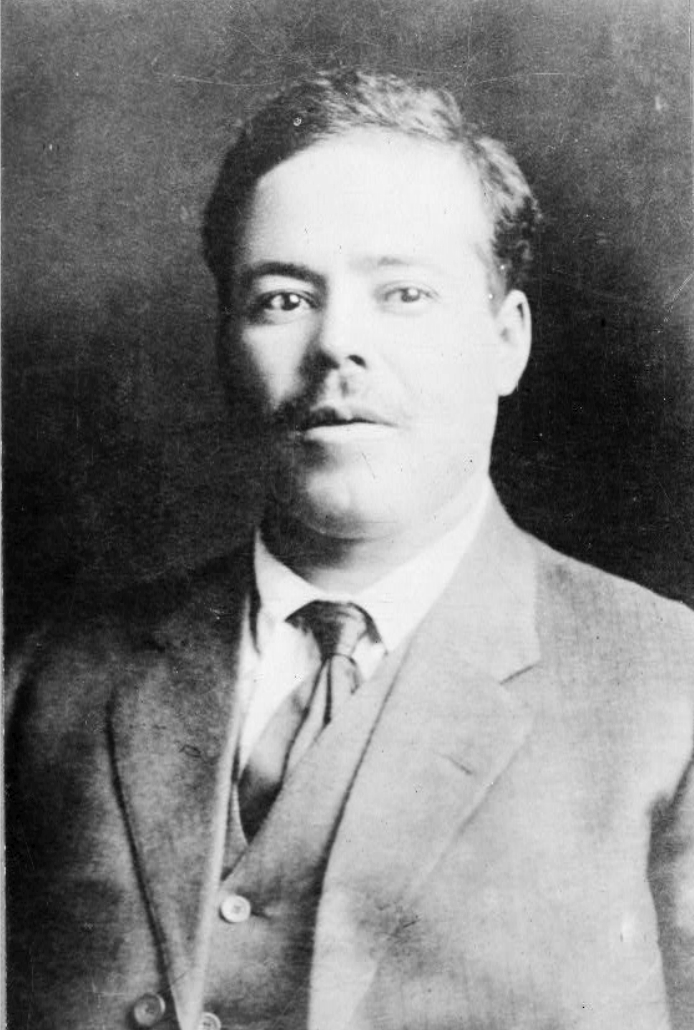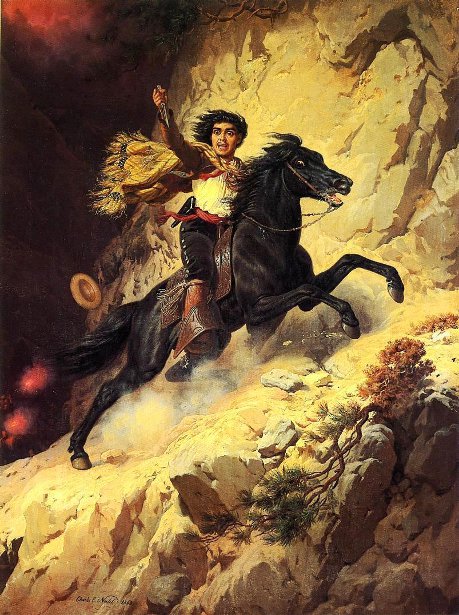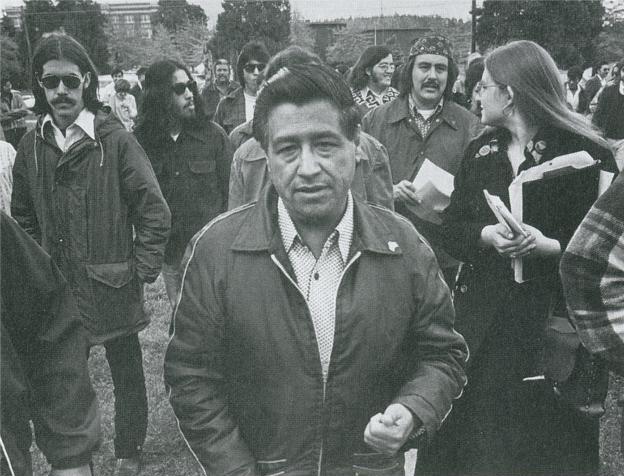|
Yo Soy Joaquin
''I Am Joaquin'' (also known as Yo soy Joaquin), by Rodolfo "Corky" Gonzales and translated by Juanita Dominguez, is a famous epic poem associated with the Chicano movement of the 1960s in the United States. In ''I am Joaquin'', Joaquin (the narrative voice of the poem) speaks of the struggles that the Chicano people have faced in trying to achieve economic justice and equal rights in the U.S., as well as to find an identity of being part of a hybrid mestizo society. He promises that his culture will survive if all Chicano people stand proud and demand acceptance. The Chicano movement inspired much new poetry. ''I Am Joaquin'' is one of the earliest and most widely read works associated with the movement. In its entirety, the poem describes the then modern dilemma of Chicanos in the 1960s trying to assimilate with American culture while trying to keep some semblance of their culture intact for future generations, then proceeds to outline 2000 years of Mexican and Mexican-American ... [...More Info...] [...Related Items...] OR: [Wikipedia] [Google] [Baidu] |
Rodolfo Gonzales
Rodolfo "Corky" Gonzales (June 18, 1928 – April 12, 2005) was a Mexican-American boxer, poet, political organizer, and activist. He was one of many leaders for the Crusade for Justice in Denver, Colorado. The Crusade for Justice was an urban rights and Chicano cultural urban movement during the 1960s focusing on social, political, and economic justice for Chicanos.“The Crusade for Justice”, Blog, the1960bloggcu.wordpress.com Gonzales convened the first-ever Chicano Youth Liberation Conference in 1968, which was poorly attended due to timing and weather conditions. He tried again in March 1969, and established what is commonly known as the First Chicano Youth Liberation Conference. This conference was attended by many future Chicano activists and artists. It also birthed the Plan Espiritual de Aztlán, a pro-indigenist manifesto advocating revolutionary Chicano nationalism and self-determination for all Chicanos. Through the Crusade for Justice, Gonzales organized the Me ... [...More Info...] [...Related Items...] OR: [Wikipedia] [Google] [Baidu] |
Pancho Villa
Francisco "Pancho" Villa ( , , ; born José Doroteo Arango Arámbula; 5 June 1878 – 20 July 1923) was a Mexican revolutionary and prominent figure in the Mexican Revolution. He was a key figure in the revolutionary movement that forced out President and dictator Porfirio Díaz and brought Francisco I. Madero to power in 1911. When Madero was ousted by a coup led by General Victoriano Huerta in February 1913, Villa joined the anti-Huerta forces in the Constitutionalist Army led by Venustiano Carranza. After the defeat and exile of Huerta in July 1914, Villa broke with Carranza. Villa dominated the Convention of Aguascalientes, meeting of revolutionary generals that excluded Carranza and helped create a coalition government. Emiliano Zapata and Villa became formal allies in this period. Like Zapata, Villa was strongly in favor of land reform, but did not implement it when he had power. At the height of his power and popularity in late 1914 and early 1915, the U.S. conside ... [...More Info...] [...Related Items...] OR: [Wikipedia] [Google] [Baidu] |
Poems Adapted Into Films
Poetry (from the Greek word ''poiesis'', "making") is a form of literary art that uses aesthetic and often rhythmic qualities of language to evoke meanings in addition to, or in place of, literal or surface-level meanings. Any particular instance of poetry is called a poem and is written by a poet. Poets use a variety of techniques called poetic devices, such as assonance, alliteration, euphony and cacophony, onomatopoeia, rhythm (via metre), and sound symbolism, to produce musical or other artistic effects. They also frequently organize these effects into poetic structures, which may be strict or loose, conventional or invented by the poet. Poetic structures vary dramatically by language and cultural convention, but they often use rhythmic metre (patterns of syllable stress or syllable (mora) weight). They may also use repeating patterns of phonemes, phoneme groups, tones (phonemic pitch shifts found in tonal languages), words, or entire phrases. These include cons ... [...More Info...] [...Related Items...] OR: [Wikipedia] [Google] [Baidu] |
Chicano Literature
Chicano literature is an aspect of Mexican-American literature that emerged from the Chicanismo, cultural consciousness developed in the Chicano Movement. Chicano literature formed out of the political and cultural struggle of Chicano, Chicana/os to develop a political foundation and Cultural identity, identity that rejected Anglo-Americans, Anglo-American hegemony. This literature embraced the Pre-Columbian era, pre-Columbian roots of Mexican-Americans, especially those who identify as Chicana/os. Chicano literature first emerged in the mid-1960s and is notable for its early embrace of Spanglish in published literature as well as its use of hybrid forms and styles. Chicana/o writers often include earlier published literature as residing within or as being a precursor to the tradition. In addition to prose, Chicano poetry and playwriting are included as forms of Chicano literature. History Chicano literature in the Chicano Movement Chicano prose was established as a distinct ... [...More Info...] [...Related Items...] OR: [Wikipedia] [Google] [Baidu] |
Epic Poems In Spanish
Epic commonly refers to: * Epic poetry, a long narrative poem celebrating heroic deeds and events significant to a culture or nation * Epic film, a genre of film defined by the spectacular presentation of human drama on a grandiose scale Epic(s) or EPIC(s) may also refer to: Arts, entertainment, and media Film * ''Epic'' (1984 film) * ''Epic'' (2013 film) * ''Epic Movie'', a 2007 film Gaming * ''Epic'' (tabletop game), a series of tabletop wargames * ''Epic'' (play-by-mail game) * ''Epic'' (video game), a 1992 video game * ''Epic: Battle for Moonhaven'', a 2013 video game by Gameloft based on the film ''Epic'' (2013) * '' Epic Card Game'', a 2015 strategy card game by White Wizard Games Literature * ''Epic'' (Kostick novel), a 2004 novel by Conor Kostick * ''Epic Illustrated'', a 1980s anthology series published by Marvel Comics Music Albums * ''Epic'' (Blood on the Dance Floor album), 2011 * ''Epic'' (Borknagar album), 2004 * ''Epic'' (R. Kelly album), 2010 * ''Epi ... [...More Info...] [...Related Items...] OR: [Wikipedia] [Google] [Baidu] |
Luis Valdez
Luis Miguel Valdez (born June 26, 1940) is an American playwright, screenwriter, film director and actor. Regarded as the father of Chicano film and playwriting, Valdez is best known for his play '' Zoot Suit'', his movie '' La Bamba'', and his creation of El Teatro Campesino. A pioneer in the Chicano Movement, Valdez broadened the scope of theatre and arts of the Chicano community. Biography Early life Valdez was born in Delano, California, to migrant farm worker parents from Mexico, Armeda and Francisco Valdez. The second of 10 children in his family, Valdez began to work the fields at the age of 6. One of his brothers is actor Daniel Valdez. Throughout his childhood, the family moved from harvest to harvest around the central valleys of California. Due to this peripatetic existence, he attended many different schools before the family finally settled in San Jose, California. Education Valdez began school in Stratford, California. His interest in theatre began in t ... [...More Info...] [...Related Items...] OR: [Wikipedia] [Google] [Baidu] |
I Am Joaquin (film)
''I Am Joaquín'' is a 1969 short film by Luis Valdez, a project of his El Teatro Campesino. Summary It is based on the poem " I Am Joaquín" by Rodolfo "Corky" Gonzáles, a key text of the Chicano movement. Reception and legacy In 2010, this film was selected for the United States National Film Registry by the Library of Congress as being "culturally, historically, or aesthetically significant". ''I Am Joaquin'' was preserved by the Academy Film Archive The Academy Film Archive is part of the Academy Foundation, established in 1944 with the purpose of organizing and overseeing the Academy of Motion Picture Arts and Sciences' educational and cultural activities, including the preservation of mot ... in 2017. External links * *''I Am Joaquin'' essay by Daniel Eagan In America's Film Legacy, 2009-2010: A Viewer's Guide To The 50 Landmark Movies Added To The National Film Registry In 2009–10, Bloomsbury Publishing USA, 2011, pages 124-12 References {{Luis Valdez 1969 ... [...More Info...] [...Related Items...] OR: [Wikipedia] [Google] [Baidu] |
Joaquin Murrieta
Joaquin Murrieta Carrillo (sometimes misspelled Murieta or Murietta) (c. 1829 – July 25, 1853), also called the Robin Hood of the West or the Robin Hood of El Dorado, was a Mexicans, Mexican figure of disputed historicity. The novel ''The Life and Adventures of Joaquín Murieta, The Life and Adventures of Joaquín Murieta: The Celebrated California Bandit'' (1854) by John Rollin Ridge is ostensibly his story. Legends subsequently arose about a notorious outlaw in California during the California Gold Rush of the 1850s, but evidence for a historical Murrieta is scarce. Contemporary documents record testimony in 1852 concerning a minor horse thief of that name. Newspapers reported a '' bandido'' named Joaquin, who robbed and killed several people during the same time. A California Rangers, California Ranger named Harry Love (lawman), Harry Love was assigned to track down Murrieta and was said to have brought his head in for the bounty. The popular legend of Joaquin Murrieta was ... [...More Info...] [...Related Items...] OR: [Wikipedia] [Google] [Baidu] |
Benito Juárez
Benito Pablo Juárez García (; 21 March 1806 – 18 July 1872) was a Mexican politician, military commander, and lawyer who served as the 26th president of Mexico from 1858 until his death in office in 1872. A Zapotec peoples, Zapotec, he was the first Indigenous peoples of Mexico, Indigenous president of Mexico and the first democratically elected Indigenous president in the postcolonial Latin America. A member of the Liberal Party (Mexico), Liberal Party, he previously held a number of offices, including the Governor of Oaxaca, governorship of Oaxaca and the presidency of the Supreme Court of Justice of the Nation, Supreme Court. During his presidency, he led the Liberals to victory in the Reform War and in the Second French intervention in Mexico. Born in Oaxaca to a poor rural Indigenous peoples of Mexico, Indigenous family and orphaned as a child, Juárez passed into the care of his uncle, eventually moving to Oaxaca City at the age of 12, where he found work as a domes ... [...More Info...] [...Related Items...] OR: [Wikipedia] [Google] [Baidu] |
Chicano Movement
The Chicano Movement, also referred to as El Movimiento (Spanish for "the Movement"), was a civil rights movements, social and political movement in the United States that worked to embrace a Chicano, Chicano identity and worldview that combated structural racism, encouraged cultural revitalization, and achieved community empowerment by rejecting Cultural assimilation, assimilation. Chicanos expressed solidarity and defined their culture through the development of Chicano art during El Movimiento, and stood firm in preserving their religion. The Chicano Movement was influenced by and entwined with the Black power movement, and both movements held similar objectives of community empowerment and liberation while also calling for Black-brown unity, Black–Brown unity. Leaders such as Cesar Chavez, César Chávez, Reies Tijerina, and Rodolfo Gonzales learned strategies of resistance and worked with leaders of the Black Power movement. Chicano organizations like the Brown Berets and M ... [...More Info...] [...Related Items...] OR: [Wikipedia] [Google] [Baidu] |
Miguel Hidalgo Y Costilla
Don Miguel Gregorio Antonio Ignacio Hidalgo y Costilla Gallaga Mandarte y Villaseñor (8 May 1753 – 30 July 1811), commonly known as Miguel Hidalgo y Costilla or simply Miguel Hidalgo (), was a Catholic priest, leader of the Mexican War of Independence, who is recognized as the Father of the Nation. A professor at the Colegio de San Nicolás Obispo in Valladolid, Hidalgo was influenced by Enlightenment ideas, which contributed to his ouster in 1792. He served in a church in Colima and then in Dolores. After his arrival, he was shocked by the rich soil he had found. He tried to help the poor by showing them how to grow olives and grapes, but in New Spain (modern Mexico) growing these crops was discouraged or prohibited by colonial authorities to prevent competition with imports from Spain. On 16 September 1810 he gave the Cry of Dolores, a speech calling upon the people to protect the interest of King Ferdinand VII, held captive as part of the Peninsular War, by revo ... [...More Info...] [...Related Items...] OR: [Wikipedia] [Google] [Baidu] |
Future Generations
Future generations are Cohort (statistics), cohorts of hypothetical people not yet born. Future generations are contrasted with current and past generations and evoked in order to encourage thinking about intergenerational equity. The Moral agency#Distinction between moral agency and moral patienthood, moral patienthood of future generations has been argued for extensively among philosophers, and is thought of as an important, neglected cause by the effective altruism community. The term is often used in describing the conservation or preservation of cultural heritage or natural heritage. The sustainability and climate movements have adopted the concept as a tool for enshrining principles of long-term thinking into law. The concept is often connected to indigenous thinking as a principle for ecological action, such as the Seven generation sustainability, seven generation concept attributed to Iroquois tradition. Sources The term refers to the impact which the currently living g ... [...More Info...] [...Related Items...] OR: [Wikipedia] [Google] [Baidu] |






